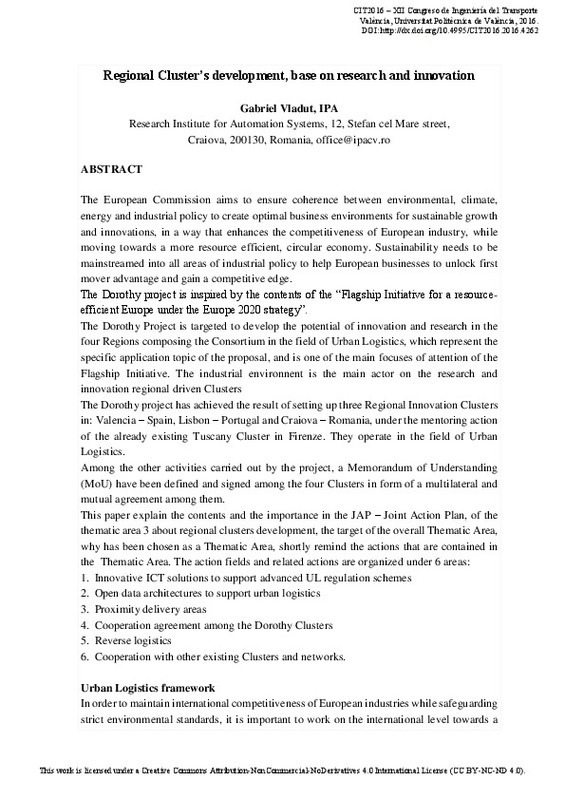JavaScript is disabled for your browser. Some features of this site may not work without it.
Buscar en RiuNet
Listar
Mi cuenta
Estadísticas
Ayuda RiuNet
Admin. UPV
Regional Cluster’s development, base on research and innovation
Mostrar el registro completo del ítem
Vladut, G. (2016). Regional Cluster’s development, base on research and innovation. En XII Congreso de ingeniería del transporte. 7, 8 y 9 de Junio, Valencia (España). Editorial Universitat Politècnica de València. 842-845. https://doi.org/10.4995/CIT2016.2015.4262
Por favor, use este identificador para citar o enlazar este ítem: http://hdl.handle.net/10251/90935
Ficheros en el ítem
Metadatos del ítem
| Título: | Regional Cluster’s development, base on research and innovation | |
| Autor: | Vladut, Gabriel | |
| Fecha difusión: |
|
|
| Resumen: |
[EN] The European Commission aims to ensure coherence between environmental, climate,
energy and industrial policy to create optimal business environments for sustainable growth
and innovations, in a way that enhances ...[+]
|
|
| Palabras clave: |
|
|
| Derechos de uso: | Reconocimiento - No comercial - Sin obra derivada (by-nc-nd) | |
| ISBN: |
|
|
| Fuente: |
|
|
| DOI: |
|
|
| Editorial: |
|
|
| Versión del editor: | http://ocs.editorial.upv.es/index.php/CIT/CIT2016/paper/view/4262 | |
| Título del congreso: |
|
|
| Lugar del congreso: |
|
|
| Fecha congreso: |
|
|
| Tipo: |
|








